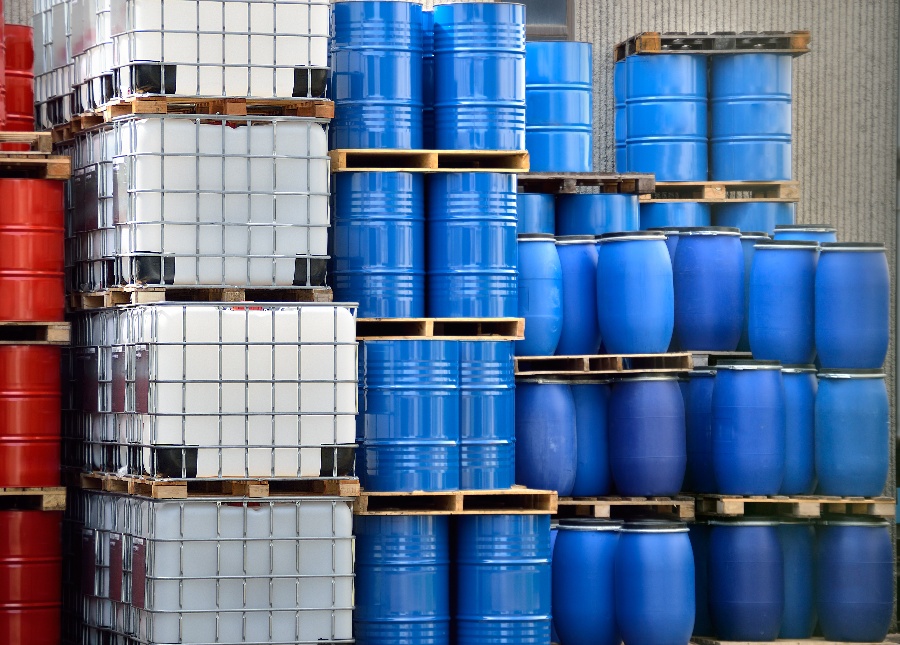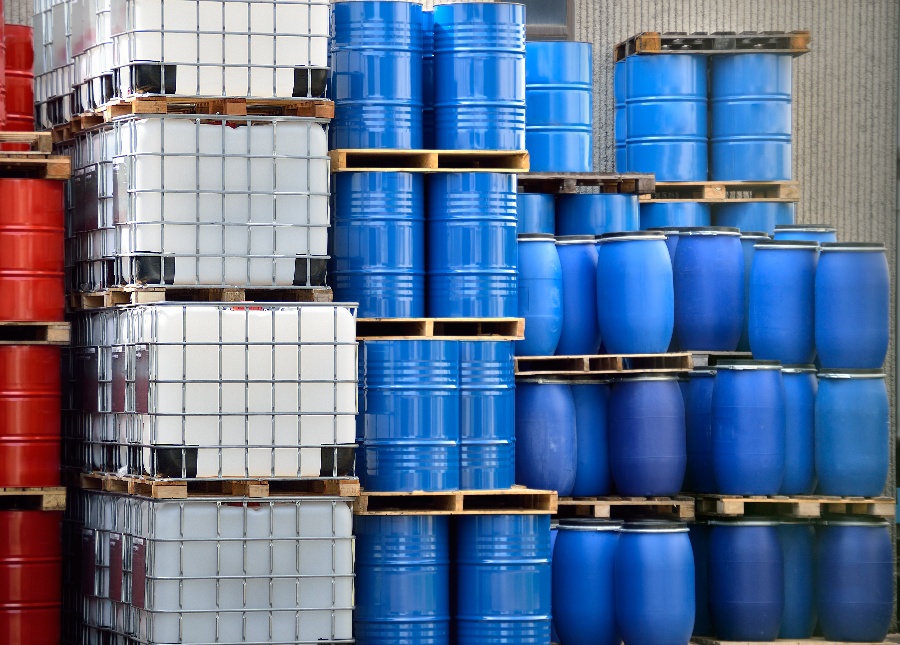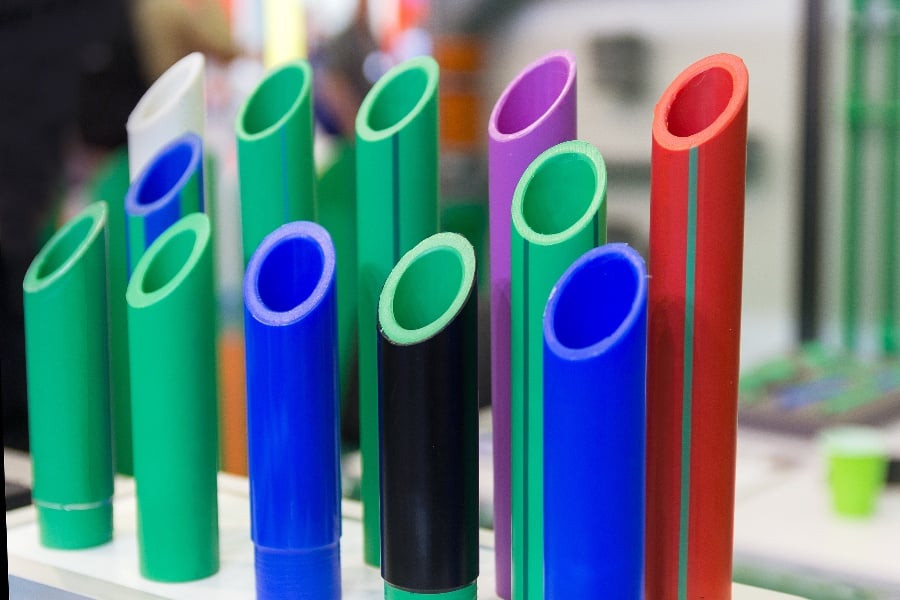
Chemical transport and storage is a critical aspect of any industrial or manufacturing operation. Chemicals need to be moved from one place to another for a wide variety of reasons, including mixing, cleaning, and manufacturing.
Choosing the right containers and transportation methods is essential for ensuring that these compounds remain stable and that they do not pose a danger to people or the environment.
In general, it is best to use large, heavy-duty containers for shipping dangerous materials. These should be manufactured from durable, highly corrosion-resistant materials like stainless steel. They should also have tight-fitting lids and sturdy handles, to prevent leaks and accidents during transport.
Once chemicals have arrived at their destination, the next step is proper storage. This involves finding suitable containers suited to the specific requirements of each individual chemical. It may also involve using secondary containment vessels, so that if there is a leak or spill, it will not seep into the ground or groundwater supplies below.
Overall, safely transporting and storing chemicals requires careful planning and adherence to strict safety procedures at every stage of the process. By taking these measures, we can minimize risks to ourselves and others while ensuring that our valuable materials reach their destination intact.
The Importance of Proper Chemical Transportation
When it comes to transporting and storing chemicals, safety is of utmost importance. Chemicals can be extremely hazardous if not handled properly, and the consequences of a chemical spill or explosion can be devastating both for those involved and for the surrounding environment. To minimize these risks, it is essential to follow strict guidelines for everything from transportation techniques to storage conditions.
This may include using specialized vehicles like tankers or containers that are specifically designed for chemicals, as well as taking extra precautions like monitoring temperature levels and using shielding materials when necessary. When it comes to handling dangerous materials like chemicals, there is no room for error – every precaution must be taken to guarantee safe transport and storage.
Common Chemicals that are Difficult to Transport and Store
Crude Oil
Crude oil is used to make other products and chemicals to power cars, make household, and industrial chemicals. However, storing and transporting crude oil can be a challenging task, as the liquid is dangerously combustible and highly viscous. Crude oil has acids and many chemicals that are corrosive and require special materials for any contact use. To safely contain and transport crude oil, engineers use specialized equipment like pipelines, tankers, and storage tanks.
These structures are designed to prevent leaks or spills while minimizing both friction and turbulence. Additionally, they employ advanced monitoring systems that alert operators if any changes occur in the status of the oil. By utilizing these methods for containment and transportation, engineers are able to ensure that our energy needs are reliably met without endangering human safety or the environment.
Ammonia
Ammonia is a key component of many industrial processes, including the production of fertilizer and explosives. It is also used as a coolant in refrigerators and air conditioning systems and provides the potential for producing electricity without harmful emissions. However, due to its toxic properties and corrosive effects, it is necessary to contain and transport ammonia safely. One of the most effective ways to do this is by using special containers made out of steel or other materials with high corrosion resistance.
These containers ensure that any accidents involving ammonia can be safely contained, limiting the risks for those who work with or near the substance. In addition, transportation via pipelines or trucks equipped with specialized tanks ensures that ammonia can be delivered efficiently to its destination. Whether used in industry or at home, it is vital to contain and transport ammonia safely in order to protect both workers and bystanders from its harmful effects.
Sulfuric Acid
Sulfuric acid is an incredibly important substance, used in a wide range of industrial processes and applications. However, storing and transporting sulfuric acid can be challenging. This is due in large part to the fact that sulfuric acid is highly corrosive and dangerous if it comes into contact with skin or eyes.
To safely store and transport sulfuric acid, it must be kept in sealed containers that are specially designed to minimize any risks of leaks or spills. Additionally, it is crucial to ensure that these containers are properly handled and transported, often using specialized equipment like forklifts and heavy-duty trucks. Overall, proper storage and transportation of sulfuric acid is essential for ensuring safe handling of this highly potent chemical.
Materials for Transporting and Storing Industrial Chemicals
When it comes to handling chemicals in industrial settings, it is critical that the right material be used. Different materials react differently to different chemicals, and choosing the wrong material can lead to disastrous consequences. It can potentially result in chemical spills or other serious accidents that may not only harm workers but also impact the environment and surrounding communities.
For this reason, choosing the right material for a given chemical can be a challenging task. Factors like toxicity, safety, cost, and compatibility all need to be taken into consideration when making a decision about which type of material to use for a particular application. However, with careful research and attention to detail, it is possible to find a high-quality material that will safely handle even the most hazardous of chemicals. Ultimately, this requires putting safety first every time while keeping costs and feasibility in mind as well. By doing so, companies will greatly reduce their risk of accidents and help ensure the continued success of their operations for years to come.
There are many different materials that are commonly used to transport and store chemicals. Metal, plastic, and rubber are some of the most common options, each with their own advantages and disadvantages. Metal containers, for example, tend to be sturdy and long-lasting. They can also resist corrosion and explosions better than other materials. However, metal containers are usually more expensive than plastic or rubber alternatives.
Plastic is another popular choice for transporting chemicals, as it is lightweight yet durable. In addition, it can withstand many different environmental conditions without deteriorating. However, plastic does not always protect against leakage or spills. Finally, rubber is an excellent choice for chemically sensitive containers due to its durable yet flexible nature. Despite these benefits, rubber can be vulnerable to cracks and punctures from sharp objects or heavy impacts. Ultimately, choosing the best material for chemical containers involves balancing costs with a range of practical considerations.
One option that has become increasingly popular for this purpose is FRP, which stands for "fiberglass-reinforced plastic."
FRP for Storing and Transporting Industrial Chemicals
This composite material offers both excellent durability and high resistance to heat, making it an ideal choice for safely storing and transporting industrial chemicals. Whether handling highly corrosive acids or flammable solvents, FRP enables manufacturers to protect their workers and downstream customers while ensuring the safe transit of these critical materials.
It should be noted that all FRP cannot be used for all chemical applications. Only certain resins and fibers should be used for the designated purpose and others will not work for some chemical transportation and storage. Liners can be added to containers and piping for added protection from chemicals. Using these liners can help engineers overcome limitations when there are extreme chemical applications.
FRP for Crude Oil Transportation and Storage
FRP is a highly durable and flexible material that has been gaining in popularity for use in the storage and transportation of crude oil. Engineers can utilize FRP tanks for large storage and transportation. With its unique molecular composition, FRP can withstand extreme temperatures and pressures without failing, making it an ideal choice for use in oil wells and pipelines. Additionally, this advanced material allows for lighter-weight components to be used, which reduces fuel consumption and minimizes carbon emissions. Whether transporting refined crude over long distances or storing raw oil within reservoirs, FRP is an excellent choice when safety and efficiency are top priorities.
FRP for Ammonia Transportation and Storage
FRP is an ideal material for creating FRP tanks for storing and transporting ammonia due to its many beneficial properties. First and foremost, FRP is extremely resilient to corrosion, making it a durable choice for ammonia storage. The high strength-to-weight ratio of FRP also allows tanks to be built with very thin walls, resulting in an overall smaller and more efficient design.
And finally, the insulating properties of FRP ensure that the temperature of stored ammonia remains constant, even in extreme climates. Engineers should consider vapor pressure when designing FRP storage tanks for ammonia, as if the tanks are not properly vented or pressure controlled, then ammonia vapor can dissolve in the storage tank to create a vacuum or negative pressure.
FRP for Sulfuric Acid Transportation and Storage
FRP is a superior material for engineering FRP tanks for storing and transporting sulfuric acid. This highly corrosive chemical can be difficult to handle safely, as its reactive nature means that it can quickly damage common materials like steel or plastic. In contrast, FRP is highly resistant to corrosion, even in strong acids like sulfuric acid. Additionally, because of its high strength and tough surface coating, FRP can withstand the intense pressure and heat that are generated by large volumes of sulfuric acid. It should be noted that FRP performs best with sulfuric concentrations of 70% and below.
So if you're looking for an effective way to store and transport your industrial chemicals, consider using FRP for maximum safety and reliability.















